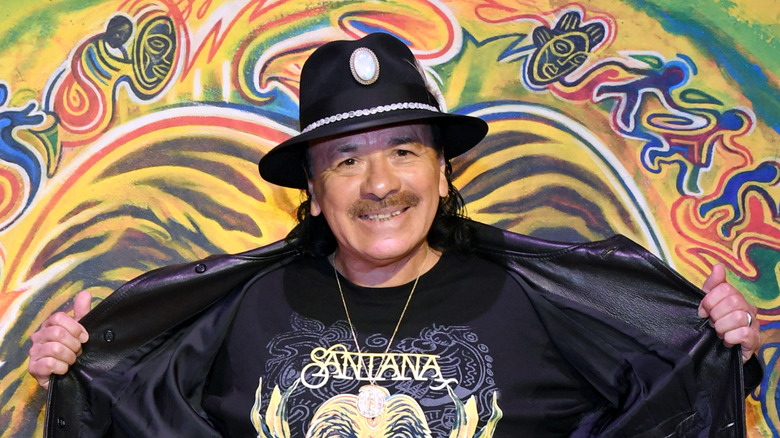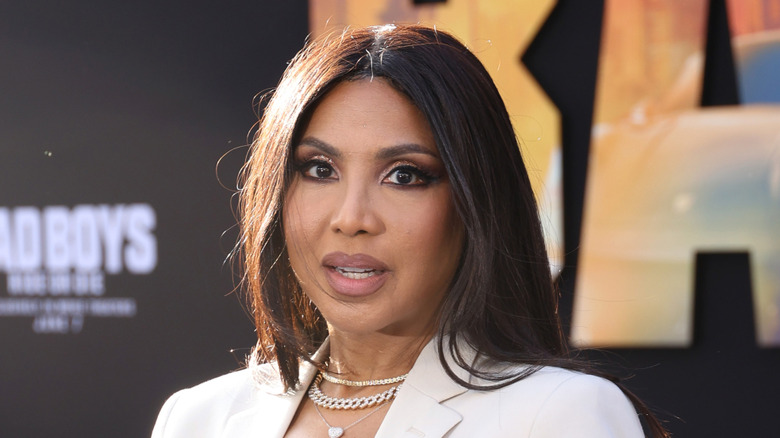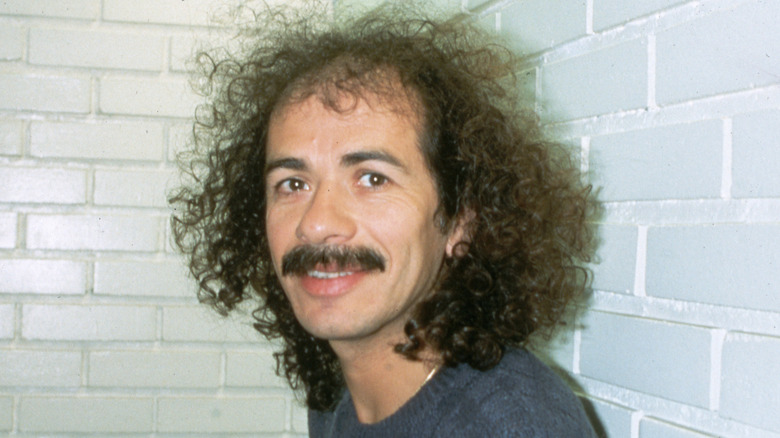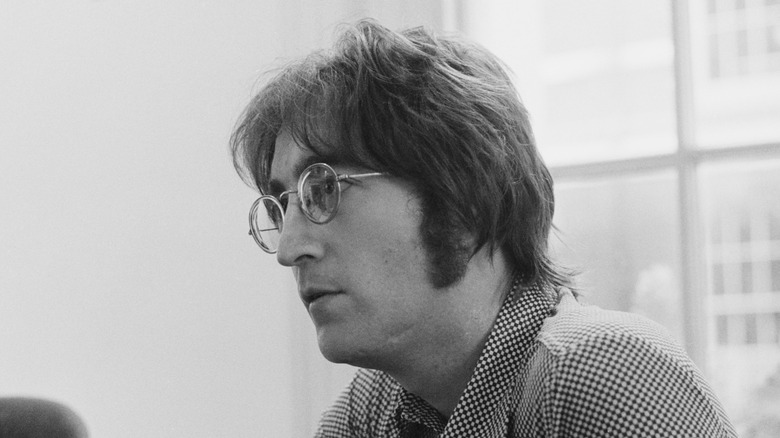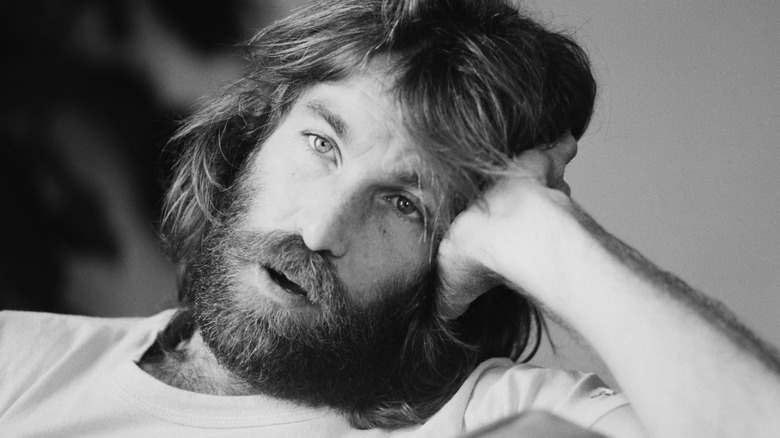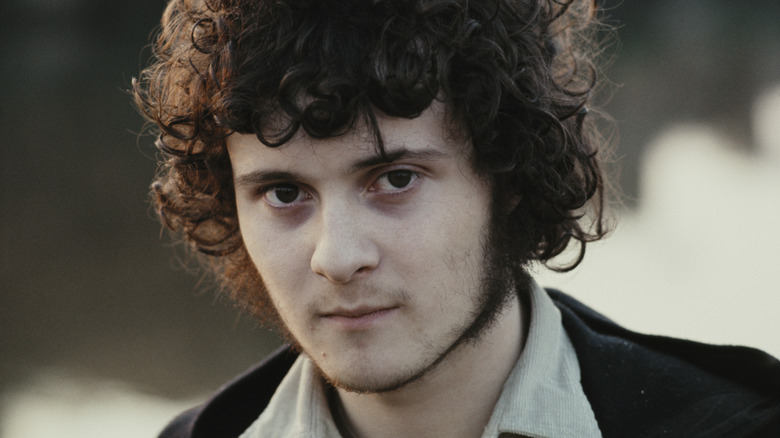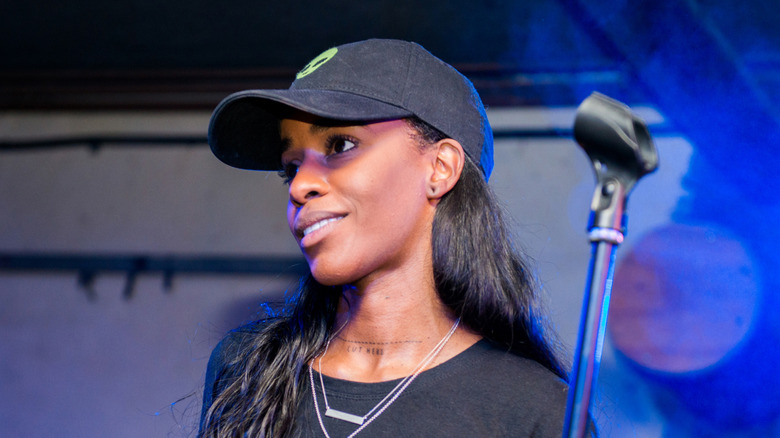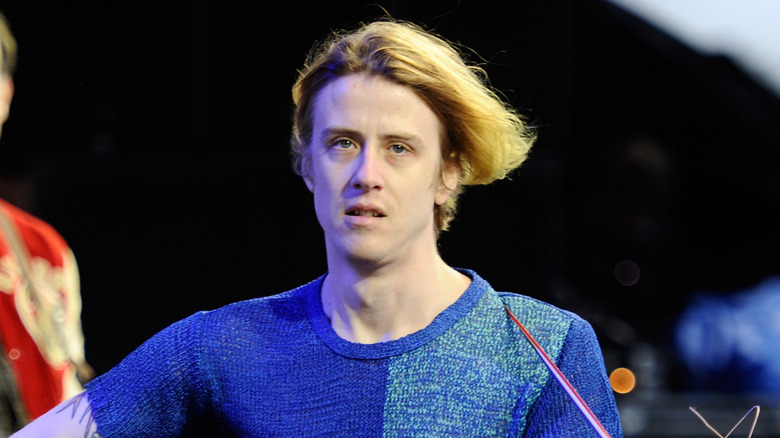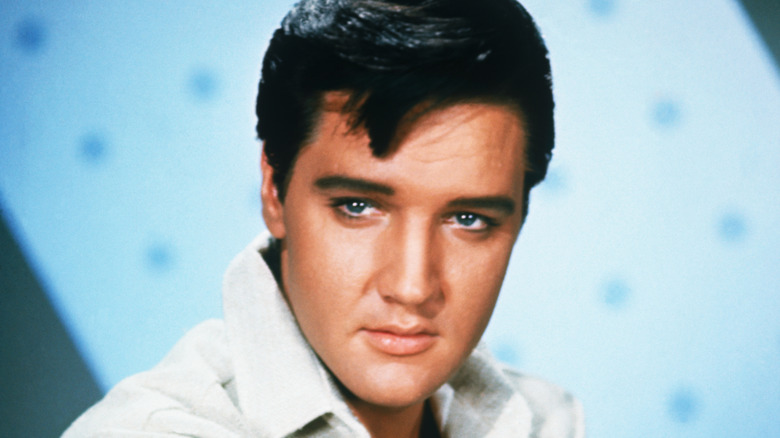Musicians You Never Knew Were In Cults
When someone reaches a certain level of fame, things can get a little strange. There are many ways this could happen. A famous person might end up believing their own hype a little bit too much. Two or more celebrities might start a feud that gets out of hand. A popular actor might make a wrong move and ruin their career in a matter of seconds. It can all get very weird in moments, is the thing.
When the celebrity in question is a musician, things can get even more peculiar than usual. After all, the public may only know them from a series of catchy songs, enticing promo images, carefully curated interviews, and well-designed music videos. This detachment between the artist and the person behind the facade can hide all sorts of things. There are popular musicians who have killed people, and others who have bait-and-switched their fans by radically changing their sounds when listeners least expected it. There are also musicians whose personal beliefs differ from the norm quite a bit, to the point where you might be surprised to find out what they've been up to when fans weren't looking. Here's a look at some of those musicians and the various cults and cult-like belief systems they have been involved with.
Toni Braxton
R&B singer extraordinaire Toni Braxton isn't the first person you might flag as someone who comes from a cult background, but this is nevertheless very much the case. Braxton's cult-like lifestyle as a child has been liberally discussed by the artist herself in her memoir, "Unbreak My Heart," where she revealed that when she was young, her family were advocates of the Pillar of Truth, a religious group that imposed some seriously oppressive rules and limitations on young Braxton. What's more, Braxton's parents also circulated through multiple other strict churches.
The Pillar of Truth advocated speaking in tongues, which Braxton learned to fake. This rapture-awaiting church also required its female members to cover themselves at all times and forbade a whole host of things that ranged from going to the movies to celebrating holidays. Of course, Braxton eventually learned to stand up for herself and became a globally famous artist, but the experience made for a pretty rough and alienating childhood — especially since she was so little that she didn't really have a say in her parents' religious journey. "I asked my mum once what they were searching for and she just replied: 'It was the 70s,'" Braxton told The Guardian.
Carlos Santana
Guitar player extraordinaire Carlos Santana might be a globally known name, but his alter ego "Devadip" might not be quite as familiar to his fans. The name supposedly meant "the lamp, light, and eye of God," and Santana acquired it in 1973 when he was studying under one Sri Chinmoy. Chinmoy has been called out as anything from controversial to an outright cult leader and even an alleged sex offender, which has caused speculation on whether Santana was under the spell of a cult leader during his years with the guru.
Santana and his wife Deborah met in 1972 and soon became involved with Chinmoy, whose teachings impressed the musician. Though Santana didn't subscribe to all Chinmoy's tenets — chiefly, he opposed Chinmoy's insistence that long-distance running was a purifying thing — they nevertheless ended up staying with the man for quite a few years.
The guitarist ultimately walked away when he witnessed Chinmoy mocking tennis star Billie Jean King's same-sex relationship and realized that the supposed guru might not be all about love and acceptance after all. The departure didn't go off without a hitch. "[Chinmoy] was pretty vindictive for a while," Santana told Rolling Stone in 2000. "He told all my friends not to call me ever again, because I was to drown in the dark sea of ignorance for leaving him."
John Lennon
Anyone who's familiar with John Lennon knows about his development from the mop-topped youth idol of the early Beatles to the vocal peace enthusiast of his solo career. However, they might be surprised to find out that apart from creating a cult of personality of his own, he had a couple of brushes with far more literal cults.
Lennon was one of the celebrity patrons of The Source, a Los Angeles health restaurant that opened in 1969 and soon boasted a customer base of Tinseltown's brightest A-list stars. This in itself wasn't particularly shocking, but it just so happened that the force behind The Source was a cult called the Source Family. Led by a man called Jim "Father Yod" Baker, the Source Family's belief system was an eclectic mish-mash of various New Age concepts. The family eventually relocated to Hawaii, where it fell apart after Father Yod's fatal hang-gliding accident in 1975.
In all fairness, it doesn't seem that Lennon was actively involved with the Source Family beyond dining at their restaurant. However, The Source wasn't Lennon's only cult association. In the early 1970s, he was arguably the most prominent celebrity advocate of charismatic psychotherapist Arthur Janov's primal scream therapy, attending sessions with Yoko Ono and promoting the treatment. Primal scream therapy has since been proved ineffective, but in its heyday it had such a cult-like status that it even spawned an Irish commune of enthusiasts who became known as the Screamers.
Dennis Wilson
The summer of 1968 was a strange time for Dennis Wilson of the Beach Boys, who spent the rest of his life regretting the day he had a chance encounter with two hitchhiking women. Wilson invited them into the large house he was renting to discuss spiritual matters. Unfortunately, the ladies were part of Charles Manson's family, and Manson's crew soon moved in with Wilson. After the cult leader convinced the musician that he was harmless, the two made fast friends. For some time, Manson and members of his family lived comfortably in Wilson's house, and the musician fell under the Manson Family's influence.
Wilson championed Manson and his musical aspirations, but several acquaintances — including Wilson's bandmates — found the cult leader extremely unnerving. "You know, it's just an unfortunate episode that happened because of one of our group members, one of our family members unknowingly invited Satan into our midst," Beach Boys member Mike Love later described the era to ABC News, noting that Wilson went as far as trying to recruit them into the Manson Family.
Wilson eventually fell out with the freeloading family after they abused his hospitality with debts, petty theft, and destruction of property. In the end, he simply left the house and allowed the lease to expire. However, he ended up heavily altering a Manson composition called "Cease to Exist" and turning it into a Beach Boys song called "Never Learn Not to Love," prompting Manson to issue a veiled threat aimed at Wilson's family.
Jeremy Spencer
The real-life story of Fleetwood Mac is tragic in some ways and strange in others, so it might not be a shock to find that one of the band members has been involved in a cult. In fact, founding band member Jeremy Spencer walked away from a Fleetwood Mac tour in February 1971 to join one. That's not an exaggeration, by the way. Spencer simply left under the pretense of going to buy a magazine, and when he didn't return, the rest of the band was understandably concerned. They eventually found out that Spencer had not only quit the band — he had joined a movement called Children of God.
Formed by David Berg in the 1960s, the Children of God is a disturbing cult that has a reputation for being incredibly controlling and abusive, and actors Rose McGowan and Joaquin Phoenix — as well as the latter's late brother River — were all under its thrall when they were young. The cult is active to this day, though it has rebranded and is now known as the Family International.
In a 2023 interview with Classic Rock, Spencer expanded on the abrupt way he left, citing frustration with the band and his growing concern about his bandmates' drug use as reasons behind his shocking decision. "The way I left [Fleetwood Mac] was wrong and a mistake," he said. "I should've told them right away, but I was desperate."
Angel Haze
Few musicians have been more open about their negative experiences with religious communities than rapper Angel Haze. She was a member of the Pentecostal Greater Apostolic Faith church until she was 15 and hasn't hesitated to describe her highly difficult experiences with them.
"We all lived in the same community, within 10 minutes of each other," she told The Guardian in 2013. "You weren't allowed to talk to anyone outside of that, you weren't allowed to wear jewelry, listen to music, to eat certain things, to date people ... you weren't allowed to do pretty much anything. Church was on Sundays, Wednesdays, and Fridays. When they did revivals it was every day. I used to just crawl under the bench and try to sleep."
Unfortunately, Haze had even worse experiences during her time with the church than the aforementioned rules and limitations. She was sexually assaulted multiple times between the ages of 7 and 10, and her family broke off all contact with her after she left Greater Apostolic Faith behind. She has described her formative years with the church that she openly describes as a cult in both her music and her interviews.
Christopher Owens
Much like Fleetwood Mac's Jeremy Spencer, Christopher Owens of the rock band Girls also spent some time in the Children of God doomsday cult, now known as the Family International. However, unlike Spencer, Owens didn't run away to join them — in fact, he was given no choice when it came to his affiliation with the group, since his mother was already in the cult when he was born. As such, he spent his youth traveling the world with the Children of God's tight-knit community, with little access to outside influences.
Owens wasn't very happy about being part of the group and came to idolize his sister and her boyfriend, who both opted to walk away from the Children of God. He decided to do the same at 16 years old, using the musical skills he'd acquired in the cult to earn money as a busker and move to Texas. However, his path wasn't easy, as he initially had no idea of how the real world worked thanks to the restrictive way the cult had brought him up.
"Imagine being raised in the Taliban," Owens described life with the Children of God to The Guardian. "Being told everybody else in the world is bad, rejecting technology, rejecting medical research, being devoted to God and believing America was evil and the end of the world was coming: all the same principles."
Elvis Presley
Elvis Presley liked to keep his finger on the spiritual pulse. He was an avid collector of spiritual literature, liked to wear both a Star of David and a cross, and was fond of preaching and singing religious hymns to his family. However, one spiritual organization Presley liked to associate with was especially peculiar.
Presley became involved with the Self-Realization Fellowship and its leader, Sri Daya Mata, in the 1960s and soon became one of Daya Mata's prominent students. The Fellowship relies on yoga teacher Paramahansa Yogananda's lessons that focus on meditation and draw from Christianity and Hinduism, and while it's a spiritual organization instead of a religious one, former members and others have called it out for operating like a cult. Presley, on the other hand, was greatly impressed by what the Fellowship and Daya Mata had to offer — and according to the singer's widow, Priscilla Presley, he even briefly considered dropping his career to take a leadership position in the society.
"At the beginning of this spiritual enterprise, Elvis was highly enthusiastic," she told Ladies' Home Journal in 2005. "He wanted to devote his life to helping others fulfill themselves through devotional discipline. In fact he wanted to be a leader of the Self-Realization Fellowship." However, Priscilla said that Daya Mata talked the superstar out of the idea, telling Presley that his path in life was to entertain.
If you or someone you know may be the victim of spiritual abuse, sexual assault, or child abuse, contact the relevant resources below:
- Call the National Domestic Violence Hotline at 1−800−799−7233. You can also find more information, resources, and support at their website.
- Visit the Rape, Abuse & Incest National Network website or contact RAINN's National Helpline at 1-800-656-HOPE (4673).
- Contact the Childhelp National Child Abuse Hotline at 1-800-4-A-Child (1-800-422-4453) or contact their live chat services.
